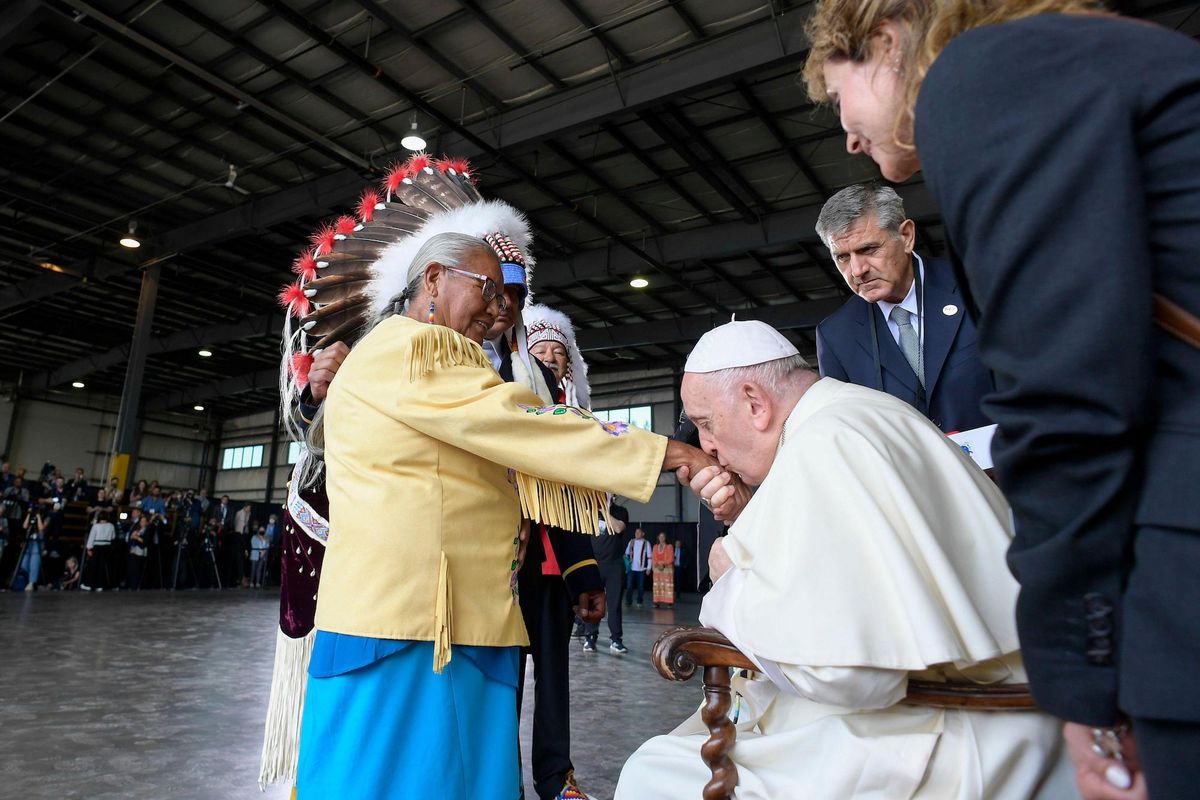The repatriation of Indigenous artefacts in the collection of the Vatican Museums is one of several subjects that has surfaced as Pope Francis continues his week-long tour of Canada, which he has described as a “penitential pilgrimage” to apologise for the role of the Catholic church in the violent forced assimilation of Indigenous communities.
Francis delivered a speech today (25 July) in Maskwacis, Alberta, to First Nations leaders and residential school survivors to address the government-funded residential schools that operated throughout Canada from the late 1800s to the mid-1990s.
Francis stated during the event that he would return a pair of children’s moccasins that he was given during a conference with Inuit and Métis leaders at the Vatican in March that symbolised the children who suffered or died as European colonists sought to evangelise Indigenous communities.
The March event also addressed concerns regarding the Vatican’s Anima Mundi Ethnological Museum, which holds thousands of Indigenous artworks, ceremonial objects and other materials. The president of the Métis National Council, Cassidy Caron, stated that tribal leaders who had viewed the Vatican collection expressed concern about how the pieces were acquired. The historic objects “belong to us and should come home”, as the works “tell stories of who we were”, she said.
It is unclear whether the pieces were confiscated from communities or gifted or sold to Catholic missionaries. One contested object, for example, is a wooden ceremonial mask from the Haida Gwaii islands of British Columbia, which could have been seized amid the 1885 Potlatch Ban. The law banned potlatch ceremonies, a commemorative gift-exchanging ritual involving the affirmation of social status within Northwest Coast communities.
The repatriation issue was not addressed during today’s event, which focused on the residential school abuses, and the Vatican museum has not yet released a statement regarding the provenance of the collection.
Canada’s Truth and Reconciliation Commission, a committee active between 2008 and 2015 to examine the impact of residential schools and the “cultural genocide” of Indigenous communities, reported that more than 4,000 children died from disease, neglect or murder at the 139 residential schools that existed in Canada, 60% of which were run by Catholic missionaries.
The commission’s findings have been contested, with one former member of its committee later arguing that the number of Indigenous children who went missing could be much higher, perhaps more than 10,000. Thousands of unmarked graves containing the remains of children have been found at several sites across Canada, and investigations remain ongoing.


